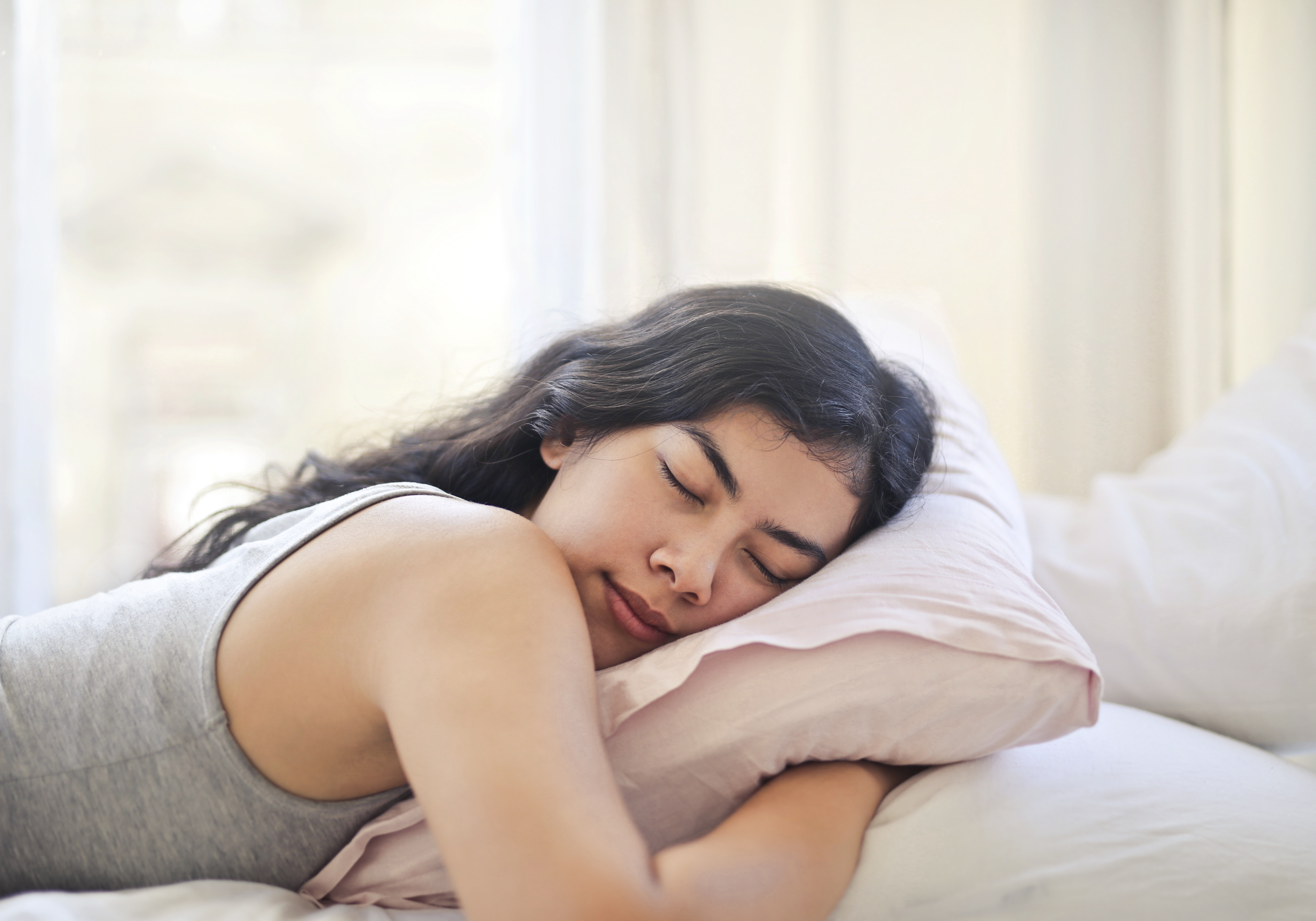How to Sleep Better: 5 Tips to Feel More Rested

Did you know that we spend about a third of our whole lives sleeping? That’s a huge amount of time, and it’s vital for our physical, mental and emotional health. Sleep is the time when your body rests, repairs and rejuvenates itself. Good sleep leaves you feeling physically energised, mentally sharp and emotionally level-headed.
However, many of us struggle with getting good sleep. How often do you have to drag yourself out of bed, or find yourself needing several coffees to get going in the morning? Poor sleep quality means we don’t feel as refreshed as we should during the day. This can lead to physical lethargy, slow decision-making and mood swings.
Here are 5 tips consider if you want to sleep better and feel more rested:
1) Create a restful environment
This might seem obvious, but it’s worth saying. Your bedroom should be a place that is calm when you are going to sleep. Sleep experts say that cool and dark bedrooms help us sleep better, so close your curtains tight and try turning the heat off. If you tend to get cold, use a blanket instead. Another way to create a restful environment and sleep better is to turn off electronic devices in your room before you sleep (if possible). Many of us are working from home due to coronavirus, and many of us are working in our bedrooms. This is unavoidable, but turning off computers and laptops before bed (instead of just putting them into sleep mode) switches off that humming sound and reduces unnecessary noise. In addition, the act of switching off your computer tells yourself that work is finished for the day and that you can now relax.
2) Get fresh air and exercise every day
Getting outside everyday is incredibly important for our mental and physical health. Engaging with the world around us is much more mentally stimulating than staying inside, and natural light is essential to keep our bodies on our natural sleep-wake cycle. Physical exercise is also a great way to tire out your body, meaning you are more likely to fall asleep quicker and sleep better. It is best to do your exercise in the morning or afternoon if possible, as exercising to close to bedtime may keep you awake due to the endorphins released.
3) Relax your mind before bed
We all know how hard it is to go to sleep when your brain is fully awake and thoughts are bouncing around your head. That’s why making an effort to relax yourself before bed can do wonders for your sleep quality. Try to avoid your phone as much as possible for at least an hour before bed. Limit your caffeine intake later in the day, and particularly after dinner as caffeine is a stimulant and keeps your brain wide awake. Some experts also recommend having a warm shower or bath in the evening to relax both your mind and body.
Many people use mindfulness apps such as Calm or Headspace to relax before sleeping. They have features such as relaxing audio stories, sleep music and mindfulness techniques.
Finally, there’s no better way to relax than to read before bed – a good old fashioned paper book, no screens involved. Fiction books are a great way to let your mind escape from whatever worries you may have. In fact, studies have found that just 6 minutes of reading can reduce stress by 68%. If you’re not into reading, try sudoku or crosswords, anything that allows your mind to focus on a task that has nothing to do with your daily worries.

4) Have a Consistent Sleep Schedule
Having a consistent sleep schedule reinforces your body’s natural sleep-wake cycle. Try to go to bed and wake up at the same time everyday and have no more than an hour’s difference between your weekday and weekend sleep-schedules. Adults typically need 7-9 hours of sleep a night, depending on your own sleep needs and your level of activity.
5) Dim the Lights in the Evening
When you’re at home in the evening, try dimming the lights for the few hours before you go to bed. Turn off bright overhead lights and use a dimmer switch or lamps to create a more relaxed atmosphere, whether you’re watching television, reading or doing a task. These low levels of light are less disruptive to our body’s natural sleep-wake cycle because the low light mimics dusk, a time in which your body starts preparing to go to sleep.
